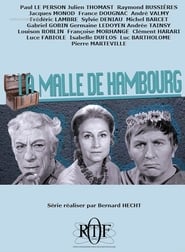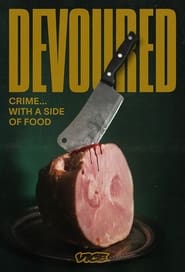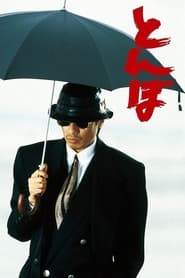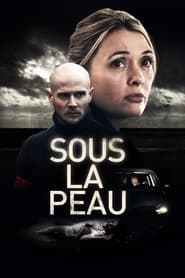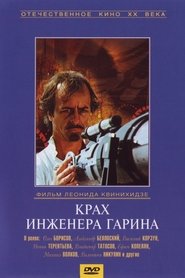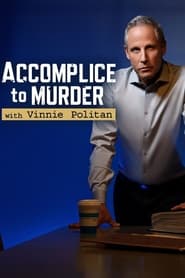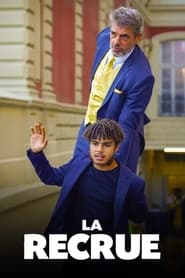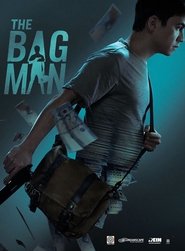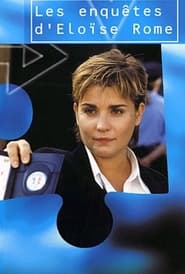Crime TV Series - Page 347
-
La Malle de Hambourg
1972
La Malle de Hambourg
1972
-
Devoured
2022
Devoured
2022
star 7Exploring the foods that Americans love while also uncovering sordid secrets and criminal pasts that chefs tried to hide. -
Dragonfly
1988
Dragonfly
1988
star 7Eiji Ogawa, a young leader of the Hattagumi yakuza, left the prison after two years sentence. However, it was only Tsuneyoshi Mito, the younger brother, who came to meet him. -
Poručík Petr
1981
Poručík Petr
1981
-
Sous la peau
2018
-
Failure of Engineer Garin
1973
star 8At the end of the 1920s, in Petrograd, on Krestovsky Island, the corpse of a man similar to the engineer Garin was found. Garin himself managed to take advantage of the brilliant discovery of the scientist Mantsev and designed an apparatus with destructive power. A dangerous hunt begins for this invention. Having faked the death, he emigrated from Russia and, under the guise of a French businessman, tries to establish contacts with the head of one of the European financial concerns, Rolling. Garin's ultimate goal is power over the world... -
Accomplice to Murder
2023
Accomplice to Murder
2023
In this new original series, Court TV’s Vinnie Politan travels across the country to speak with accomplices — the convicted, condemned and exonerated — who share a unique look into cases and verdicts that might not be as clear-cut as initially thought. The series is told using Court TV’s unrivaled coverage of trials spanning nearly two decades. Each episode features unique stories and a cast of characters who face life in prison for crimes they may or may not have committed. -
Berko
2019
Berko
2019
star 2Sparks fly between an investigative journalist and a young escort with secrets as they investigate the hidden world of arms trafficking. -
48 Hours
2006
48 Hours
2006
There's no time to waste: in just 48 hours a fugitive can disappear for good! The motto of Deputy Head of Police Diego Montagna and his Catturandi squad is: “in order to know where they are, we must find out who they really are”. In order to do so, the squad must enter the minds and the hearts of the fugitives before it's too late. This battle against time will force them to face up to their own dreams, fears and weaknesses, because the only way of knowing the mind of another is to learn to know and dominate one's own. -
Death of an Expert Witness
1983
star 6.5When Dr. Edwin Lorrimer, a forensic scientist working at a private laboratory is found killed, Detective Superintendent Adam Dalgliesh is sent to investigate. Dalgliesh had been in the area a few months previously investigating the murder of a young woman found in an abandoned car. There are several suspects: Lorrimer's subordinate, Clifford Bradley, who despises him; the new head of the laboratory, Maxim Howarth, who is jealous of his sister's relationship with him; a colleague, Paul Middlemass, who had a fight with Lorrimer. There is also a gruff and likely unethical policeman who was on the grounds of the laboratory at the time of the killing and a local pathologist who is raising his two young children after his wife leaves him for another man. When one of the suspects is also murdered, Dalgliesh learns a key piece of information. -
Stop, Search, Seize
2015
Stop, Search, Seize
2015
star 8Documentary following Ireland's Customs teams as they, with the help of the Irish police, try to stop organised smugglers from bringing drugs, cars and even exotic animals into the country. -
Touban Bengoshi
2020
Touban Bengoshi
2020
The stabbed corpse of IT company president Kinji Shiroyama (Yuichi Haba) is found in the Gulf warehouse at Hinode Pier. Unemployed Satoru Oki (Yoshiyoshi Arakawa) who ran away from the scene of the incident is arrested as the murderer. Fujiko Kajiwara (Yuki Matsushita), who was asked to be a duty lawyer meets him, but Ooki denies the charges makes repeats vague statements and refuses to tell the truth. -
La Recrue
2024
-
The Bagman
0000
The Bagman
0000
Convicted prisoner and former governor, Benjo Malaya, learns the tragic news about his missing family, he is left with no choice but to return to the vicious underworld that he turned his back on, and take on a new mission, this time, as a fixer for the sitting president of the Philippines to stop an impending and civil war. -
I Solved a Murder
2013
-
Cellmate Secrets
2021
Cellmate Secrets
2021
star 8Cellmate Secrets revisits some of the most infamous stories of headline-grabbing criminals. Actress Angie Harmon narrates the series, which reveals new insights and information as former friends, guards, cellmates and lovers give first-hand accounts of their time with the famed felons and defendants.
